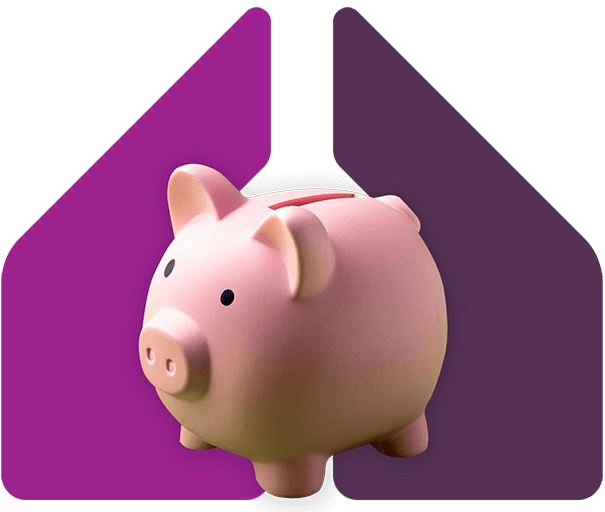These are the following types of mortgage you might want to know more about:
Repayment
A repayment mortgage is where you repay the capital and interest you owe. Once completely settled, you will own your home. As a first-time buyer, you are most likely to get a repayment mortgage.
Interest-only
With interest-only mortgages, you only repay the interest on the loan. At the mortgage term end, you will still owe the total sum of the loan and, depending on your circumstance, you may need to sell the property to pay it off.
Fixed rate
This is where your interest rate and monthly payment remain the same for a set time, typically two, three, five, or ten years.
Variable rate
Variable rate mortgages can see interest rates fluctuate. They may appear a better deal but be mindful that they are riskier.
Checking your credit score
There are three main credit reference agencies in the UK: Experian, Equifax and Callcredit. Every agency has its own way of scoring, and idea of what constitutes a good score.
Experian and Equifax displays a score out of 999 and Callcredit, out of 5. The higher you score, the better your chance of being accepted for a mortgage.
Getting pre-approved
To get pre-approved:
- Check your credit score
- Collate relevant documents, such as bank statements, pay slips, tax returns and debts or assets information
- Decide which lender is most suitable for you, or use an established whole of market mortgage broker who can help
- Submit your mortgage application. Complete the application form and include the necessary documents
Finding a mortgage lender
If you’d prefer to approach lenders directly, you’ll need to research and compare which ones suit your financial situation. Look for one that is offering favourable terms and who offers a good level of customer service.
Making your application
The steps to making a mortgage application are:
- Secure an Agreement in Principle
- Start property-hunting
- Make your formal mortgage application
- The lender arranges a property valuation
- Receive your mortgage offer
- Appoint a conveyancer or solicitor
- Exchange contracts
- Completion
Understanding mortgage offers
If successful, you’ll receive a mortgage offer, usually valid for three to six months, which outlines interest rate, loan total and repayment terms and conditions.
Review this document to make sure you’re satisfied with everything.
Completing the purchase
On the agreed date of completion, your mortgage funds are transferred to the seller’s conveyancer. You are then able to collect the keys and begin enjoying your new home.






